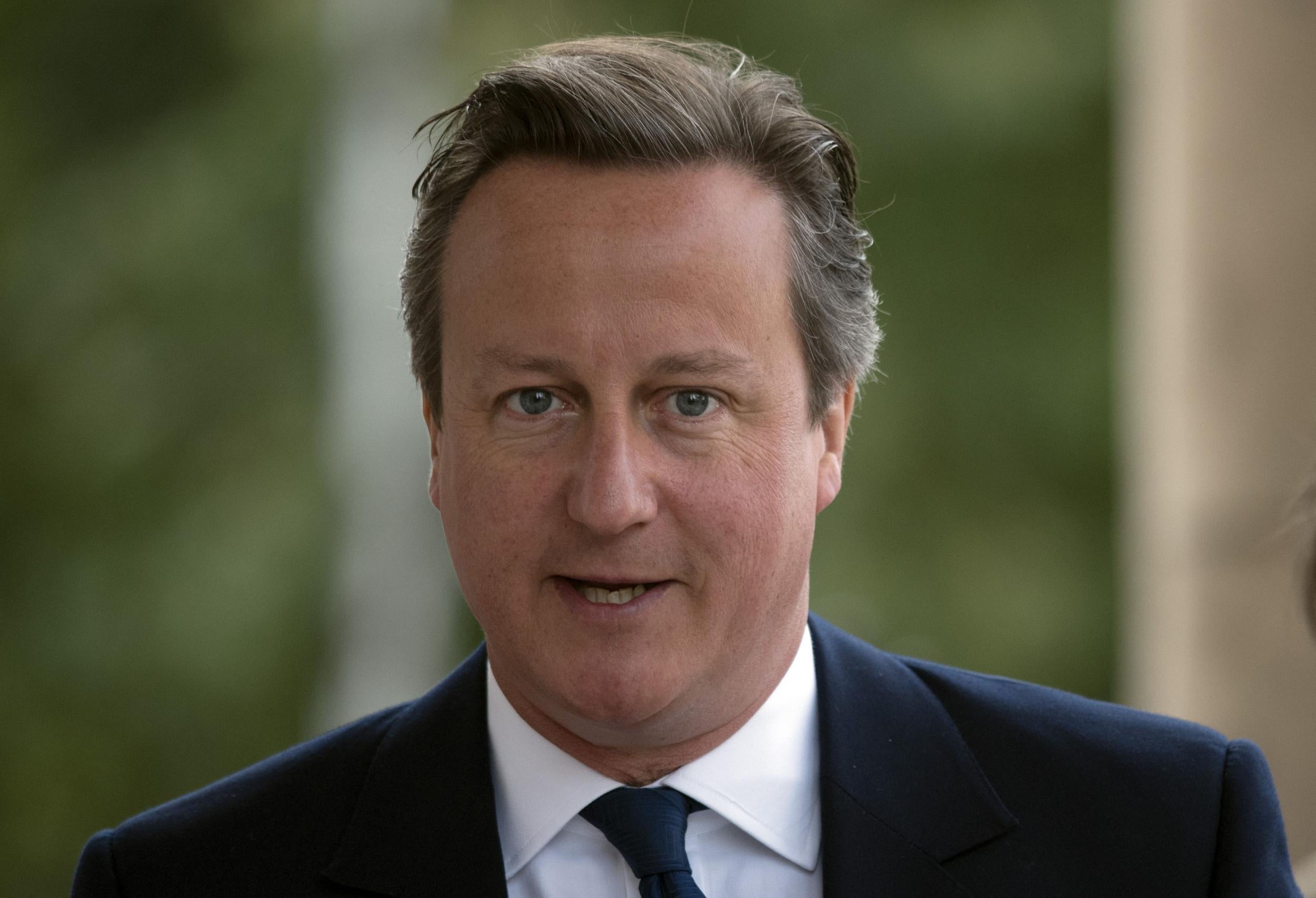David Cameron 'open to different ways' of achieving core goal of barring EU migrants from claiming benefits
The Prime Minister signalled he was willing to make concessions on the most contentious of his four demands to change Britian's relationship with the EU

Your support helps us to tell the story
From reproductive rights to climate change to Big Tech, The Independent is on the ground when the story is developing. Whether it's investigating the financials of Elon Musk's pro-Trump PAC or producing our latest documentary, 'The A Word', which shines a light on the American women fighting for reproductive rights, we know how important it is to parse out the facts from the messaging.
At such a critical moment in US history, we need reporters on the ground. Your donation allows us to keep sending journalists to speak to both sides of the story.
The Independent is trusted by Americans across the entire political spectrum. And unlike many other quality news outlets, we choose not to lock Americans out of our reporting and analysis with paywalls. We believe quality journalism should be available to everyone, paid for by those who can afford it.
Your support makes all the difference.David Cameron has said he is "open" to considering different ways of achieving his core goal of making EU migrants wait four years before they can claim benefits.
Signalling that he could be open to making concessions on the most contentious of his four demands in his attempt to renegotiate Britain's membership of the EU, the Prime Minister said he understood barring EU migrants from claiming in-work benefits for four years would be "difficult" for some member states to accept.
He nevertheless reiterated his pledge to stop EU migrants from claiming child tax credits, working tax credits or access to social housing until they had lived in the UK for at least four years.
However his demands were immediately rebuffed by the European Commission, who said his desire to limit migrants' access to benefits discriminated between EU citizens.
A European Commission spokesman said: "Some things which are highly problematic as they touch upon the fundamental freedoms of our internal market; direct discrimination between EU citizens clearly falls into this last category."
Mr Cameron was delivering a key speech on his EU renegotiation bid ahead of the publication of a long-awaited letter to the European Council president Donald Tusk, who chairs meetings of the 28 national leaders.
He set out four "objectives" that he promised to make "progress" on before announcing the date of the referendum, which will be held sometime before the end of 2017.
The Prime Minister, who has met each of his fellow 27 EU leaders in his attempt to persuade them to agree to his demand to reform Britain's relationship with the EU, said: "We have proposed that people coming to Britain from the EU must live here and contribute for four years before they qualify for in-work benefits or social housing, and that we should end the practice of sending child benefit overseas.
"Now, I understand how difficult some of these welfare issues are for other member states, and I am open to different ways of dealing with this issue.
"But we do need to secure arrangements that deliver on the objective set out in the Conservative Party manifesto to control migration from the European Union."
He rejected criticism from eurosceptics who claim his attempts to reform key tenets of the EU was “mission impossible”, saying he had “every confidence that we will achieve an agreement that works for Britain and works for our European partners.
However, in a warning to his fellow EU leaders, Mr Cameron said that if his demands fell on deaf ears then he would be open to Britain leaving the union.
“If we can't reach such an agreement and if Britain's concerns were to be met with a deaf ear, which I do not believe will happen, then we will have to think again about whether this European Union is right for us,” he said.
"As I have said before - I rule nothing out."
Join our commenting forum
Join thought-provoking conversations, follow other Independent readers and see their replies
Comments